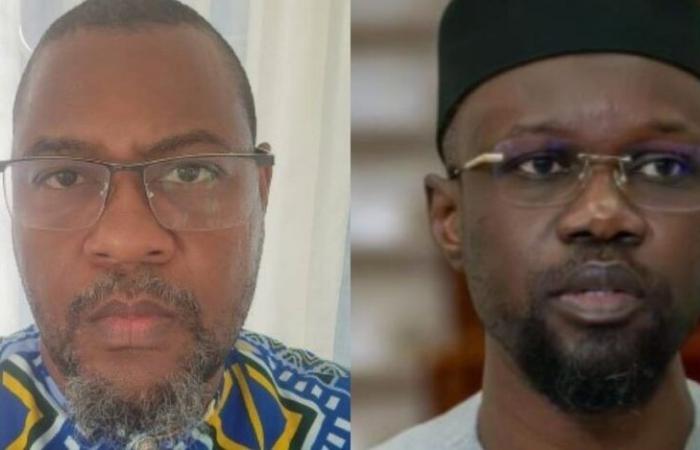Mr Prime Minister,
Following your General Policy Declaration, we come to bring our light to this project of a Sovereign, just and Prosperous Senegal. This is directly in line with the fundamentals of sustainable development. Mr Prime Minister, a nation needs indicators to measure its economic and social health and the objectives it sets for itself. It must identify indicators allowing it to assess its performance. In the sphere of economic science, several indicators are proposed. They made it possible to classify countries, on a global level, according to their “level of growth” or their “level of development”. They also allowed decision-makers and experts to establish a diagnosis and propose “remedies” to revive economic growth through structural programs.
→ ALSO READ: The Prime Minister and the constitutional feat (By Professor Meïssa DIAKHATE)
You took part in an exercise where objectives and strategies were identified in order to achieve the realization of your vision of Senegal. Many of your predecessors did the same. They dangled the people with reassuring words. But, from agreed in emerging Senegal those who come to the bar of the National Assembly always retrace a dark situation of the past as if the myth of Sisyphus was attached to the destiny of Senegal. In other words, it is as if one thing remains constant: the numerous indicators and strategies have barely changed the situation of the Senegalese: greater illegal emigration, distraught youth, an unstable inflation rate. Everything suggests that the economic indicators are suffering from a certain inadequacy. They only very imperfectly reflect reality, the socio-economic situation of the country. We must therefore question their relevance as well as their validity in giving more weight to sustainable development.
Sustainable development already proposed at the end of the 20th century attempts to fill this void. The German philosopher Hans Jonas (1979) specifies to this effect that development as considered by the West cannot be sustainable because it does not take into account the environmental aspect. If the classic analysis of sustainable development is supposed to be based on three fundamental pillars which are the Economy, the social and the environment, it nevertheless remains to integrate other factors allowing it to give its full importance. This is the case of the cultural dimension. Integrating this new parameter would mean talking not about sustainable development as a link that fits into a standard chain but rather about situated sustainable development. This therefore means that a first question arises, namely the fundamental redefinition of this concept. Our approach to sustainable development is based on six pillars: in order of priority: Identifiable development (1), Stable development (2), Reliable development (3), Viable development (4), Livable development (5), Equitable development (6).
→ ALSO READ: France: The Élysée announces that the Prime Minister will be named Friday morning
An identifiable development : The development approach cannot be reduced to standard elements given the specificity and socio-cultural dimension of peoples. In other words, sustainable development is first identified from the beliefs and relationships that individuals have with nature and the society to which they are attached. Consequently, the socio-cultural realities of a citizen of Baol are not the same as those of a citizen of Casamance or a citizen of Ferlo. This is why sustainable development cannot be a general concept because it must be clearly defined in an anthropological and sociological space.
Stable development : The policy of establishing sustainable development cannot be done without strong institutions which enact these policies and people with values who embody them. Institutions not in the pay of a power but in the service of the aspirations of the people. If the principle of sustainability is to be established over time, with a view to taking into account the needs of future generations, there must first of all be continuity in the policies implemented. This then requires stability of institutions. Then sustainable development requires credible institutions. Which means that institutions must be respected by the populations and by the components of these institutions. Thus the concept of power must be understood as a service and not as an opportunity to serve oneself. Which then induces the values of good governance, transparency and the fight against corruption.
→ ALSO READ: Burkina Faso: Jean Emmanuel Ouédraogo appointed Prime Minister
Reliable development : Talking about transparency and the fight against corruption means highlighting values that drive populations in time and space. It is giving back to the notion of development an ethical character (djub and djubal) where each individual can identify and by extension flourish in order to fully participate in the conceptualization of sustainable development. To this end, it is because individuals identify with certain forms of values which are specific to a nation that they feel they belong to this nation and contribute with the nation to a development which is specific to them.
Viable development: If the development of future generations must be taken into account, the resources necessary to meet needs must take the environment into account. This requires first of all a reorganization of urban planning in the face of the accelerated development of cities and a reduction in the rate of CO2 emissions. The concept of “Environment” is vast and complex. It involves several components of society. Consequently, taking the environmental aspect into account requires perfect integration between the producer, the consumer as well as all the other factors that associate the ecological dimension while distributing information equitably between all these actors. This shows that viable development requires shaping a new human being capable of integrating the environment into their new way of life.
A livable development : Sustainable development cannot be universal. It is identifiable and adaptable to a society with its own objectives. It is because the components of society come together through values, a destiny, a common goal that we can then think of a social project that endures over time. To this end, no people, no nation has been able to develop without taking into account its anthropological dimension. Seen from this angle, the concept of development or modern State is relative in the sense that these concepts are decreed by societies which are the only ones to find themselves there. Therefore, livable development begins with the promotion of values specific and identifiable to a people.
Equitable development : From the moment populations have a common destiny, a unique vision, the benefits must be distributed equitably without distinction of ethnic groups or religious and traditional communities. Sustainable development then rejects any form of inequality in order to avoid social or religious tensions and to make society stable. If the dimension of equity is understood and established, a feeling of overall growth is formed, even a rule of law. A feeling of homogeneous evolution where everyone contributes to the height of their abilities and improves over time. In fact, a leverage effect of human capabilities is created in the sense that in this type of development Man is in a perpetual quest to receive more equitably and up to what he is worth. In other words, sustainable development is above all human since it seeks to perpetuate the human race and is based on fundamental values. It is a fair and equitable development for all people, hence the importance of respect for human rights. It draws its full meaning from a social project that could seem utopian. But the history of men retains two principles which have made people evolve: the Revolution or Utopia.
Mr. Prime Minister, may these few possible solutions guide your mandate so that Senegal continues to shine even brighter before the world.
Receive our respectful greetings
Dr Franck CARLOS
Economist
President of the Network of Former Jecists of Africa Senegal Section






